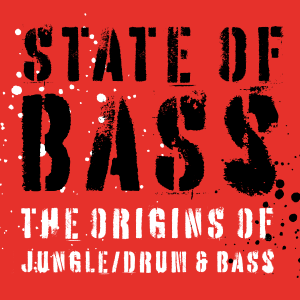As far as reporting the underground club and music scene is concerned, Soul Underground represents Ground Zero. Under the guidance of editor David Lubich, the best of Soul Underground magazines have been compiled into a massive tome called Catch The Beat by those industrious guys at djhistory.com Bill Brewster and Frank Broughton. Soul Underground was the first magazine to publish Brian Belle-Fortune’s writing. Here’s the story…
I first came across a copy of Soul Underground in Black Market Records and became an instant fan of the fanzine. Soul Underground bulged with topics I really cared about.
The writers included The Face’s Lindsay Baker, Kiss FM’s Judge Jules and club land’s Jay Strongman had their ears really close to the ground. The feel of the magazine was far more accessible and less esoteric than some other print offerings.
Within weeks I turned up in the editor’s front door with an article about pirate radio and an idea to interview John Peel. David printed both. I was in. And that meeting set me on a road which changed my life.
Spring ’87. When I walked into editor David Lubich’s office, I didn’t confess that I had spent a couple of years in the remedial English class, had failed English O-level and had definitely not attended any journalism courses. So what the hell was I doing in David’s office?
I was passionate about music and London’s Underground club scene and had been since the early 80s when I discovered street skating and the beats of pirate radio. We’d be rolling and dancing with our quads on the floors of the Electric ballroom Camden Town.
Without the wheels I’d check clubs like The Horseshoe, Le Beetroot and The Royalty in Southgate. My God… the music, the people, the clothes, the dancing, the sweat dripping off the ceilings… I was excited enough about what I experienced that I always wanted to tell other people.
But I had to get serious about a career so I moved out of London to soulless High Wycombe to start my nurse training; reluctantly leaving club land behind. The new people around me didn’t have any understanding of that vibe. You can take the boy out of the street, but you can’t take the street out of the boy.
Of course there were parties. Doctors and nurses parties are notorious in the public imagination. True enough. But the thing is the music was always awful. I’d swapped the grooves of the Electric Ballroom for the doctors’ mess with people standing around a soulless floor distorted by Meatloaf’s Bat Outta Hell. That had to change. So I got a couple of belt driven turntables, a mixer from Tandy, wired it to my stereo, handed out flyers and put on my own parties.
Towards the end of my nurse training the only route back into the underground was via trend magazine The Face. In its heyday that magazine gave me so much. It stamped authority on British underground culture. The look was alternative and stylish from the photography to Neville Brody’s postmodernist fonts.
But above all I was inspired by the quality of the writing, especially by David Toop, Lindsay Baker and Gavin Hills. I didn’t know anything about literary critique. But I did know that this writing was as seductive as the scenes they described.
High Wycombe was too distant from London. Within weeks of qualifying as a nurse, I joined the intensive care staff of St Bartholomew’s Hospital with the intention of getting right back into London life. I couldn’t have returned at a more crucial time.
This was 87/88. There was The Wag, The Do(s) at the Dome/Zoo/etc, Westworld, Soul II Soul. All were interwoven by premier pirate station Kiss FM who ruled the airwaves.
The writing thing and I happened almost spontaneously – which on reflection isn’t exactly true. Subconsciously language, music and writing in my head have always been intertwined.
Friends would ask me to correct the English in their letters and essays. If there was a word or grammar out of place it would feel like a wrong note. In nurse training there were all those essays and patient reports you had to write correctly, even though the subject matter wasn’t exactly funky.
The thought of enrolling in a creative writing evening class filled me with dread. I wouldn’t and didn’t. Perhaps my gut feeling harboured a deep distrust of authority.
Years later David asked me about my journalistic, disarming interviewing technique. My interview technique came from nursing. As a nurse you learn how to speak to everybody. Sometimes you can gain answers without even asking questions. I guess I was a natural writer, relying on the kind of self-reliance fundamental to Hip Hop, sound systems, warehouse parties, pirate radio and they whole underground culture I loved.

